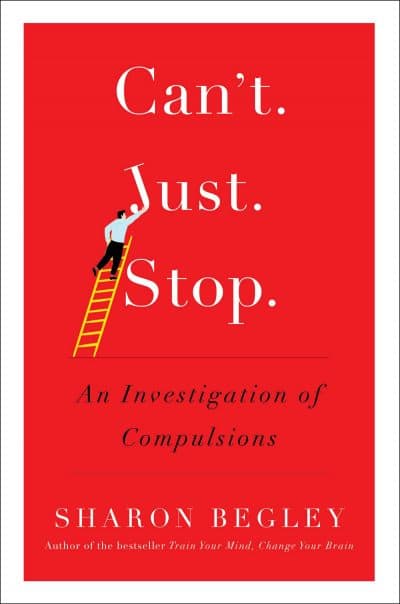Advertisement
Why You Can't Stop Checking Your Phone
Resume
According to a new study by the American Psychological Association, nearly half of Americans say they are checking their emails, texts or social media accounts constantly.
And while that's probably not surprising to you, what might be is the reason we can't stop checking. Sharon Begley has written a book about why so many of us are constant checkers and what drives our compulsions — from tweeting to online shop to hoarding.
Guest
Sharon Begley, senior science writer at STAT and author of "Can't Just Stop: An Investigation of Compulsions." She tweets @sxbegle.
Interview Highlights
On how compulsive behaviors exist on a spectrum
“... From the mild, which I think most of us have some form of, to the extreme, where it’s diagnosable, it’s recognized psychiatric disorder, and it can really impair your life and cause you huge distress. At the extreme it would be something like obsessive compulsive disorder but the more mild form would be, and I’ll use an example from the book, someone who just feels she needs a little island of calm, tranquility and order in her home because the outside world is crazy and uncontrollable ... she’s compulsive about how she arranges her teacups and her dining room chairs, how the bath towels hang ... and she feels compulsive about doing that.”
On how, as comedian Louis C.K. explains, anxiety causes us to constantly check our electronic devices
“... Louis CK could be running a psychology department because there was an experiment in which people were given a choice between no phone or an electric shock. And people preferred the mild electric shock. They said ‘No, I would rather have the mild electric shock then for you, the researcher, to take my smart phone away from me for even twenty minutes.’ We weren’t talking about going without it for a week. So, we are absolutely tied to our electronic devices, and; ... the underlying motivation is anxiety.”
When we don’t have them in our hands, when we can’t check them constantly, this intolerable anxiety just rises up in us. And, of course, the question, where does that come from. FOMO, fear of missing out, is so common it now has it’s own acronym. The feeling that if we’re not constantly checking some amazingly, fascinating, important thing is going on that we’re not aware of. The other little thing … we’re really bad with being alone with our own thoughts.”
On how compulsions are not always mental disorders and, sometimes, can be helpful
“Just because you have a compulsion does not mean that your brain is broken. In fact, compulsion is often a way to diffuse anxiety that we feel because that’s just how the world is. It’s what scientists call an adaptive response. It’s a way again to sort of drain away anxiety that you would otherwise feel.
... Once it gets to be distressing and impairing your life then you have segued into an actual mental disorder but there are just tons of compulsions that are well short of that and that actually serve us very well.”
On the difference between compulsions and addictions
"... Compulsions are different from addictions. Addictions ... are born out of a sense of joy and fun and you actually like them, you are addicted to chocolate or you are addicted to gaming or you are addicted to even gambling. With compulsions there is not a lot of joy there ... it doesn’t feel fun, it doesn’t feel like we love it, it feels like we have to and if we don’t do it’s anxiety.”
On why ‘variable, intermittent rewards’ make it hard to resist checking your phone
“The reason why it’s so hard to [ignore] our electronic devices, whether it is text, or emails, or the latest post on Facebook … they have a characteristic that psychologists call variable, intermittent rewards."
...Variable, intermittent rewards are the sort of slot machine model. You'd pull ... and you’d just get nothing but every once in awhile it was a jackpot. That was exactly what social media is like in it’s reward structure. You might have just checked all your emails but you can’t be sure that a new one just came in in the last five seconds and it is going to transform your life or, at least, be interesting and fun, and that’s why the human mind makes is structured in a way that makes it really hard to resist variable intermittent rewards."
On the ways to begin weaning your off of digital devices
“... There is a recognition that things have gone too far. That’s why we see things like the National Day of Unplugging ... just to somehow wean people from their digital crutches.
... Don’t go cold turkey but see if you can sleep overnight without having your phone or see if you can get through a dinner with friends without the phone on. Again, not saying you have to go 24/7 without it but see if you can do it for just an hour or a few minutes. If you did get the message from that experience that the world did not end, if you were able to sort of keep your anxiety under control, then that might give you the wherewithal to dial back even further.”
This segment aired on February 23, 2017.

